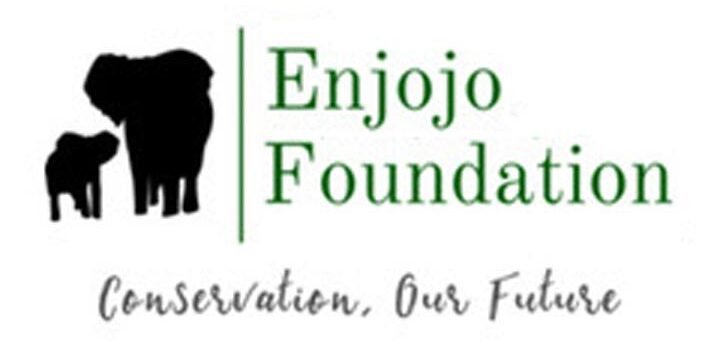Conservation Model
Enjojo Foundation implements a conservation model in which all stakeholders benefit from nature in a sustainable and harmonious way. It is based on seven pillars which are intrinsically linked and complementary to each other: Peace, Governance, Community Development, Law Enforcement, Infrastructure and logistics, Wildlife and Habitat management, and Tourism Development.
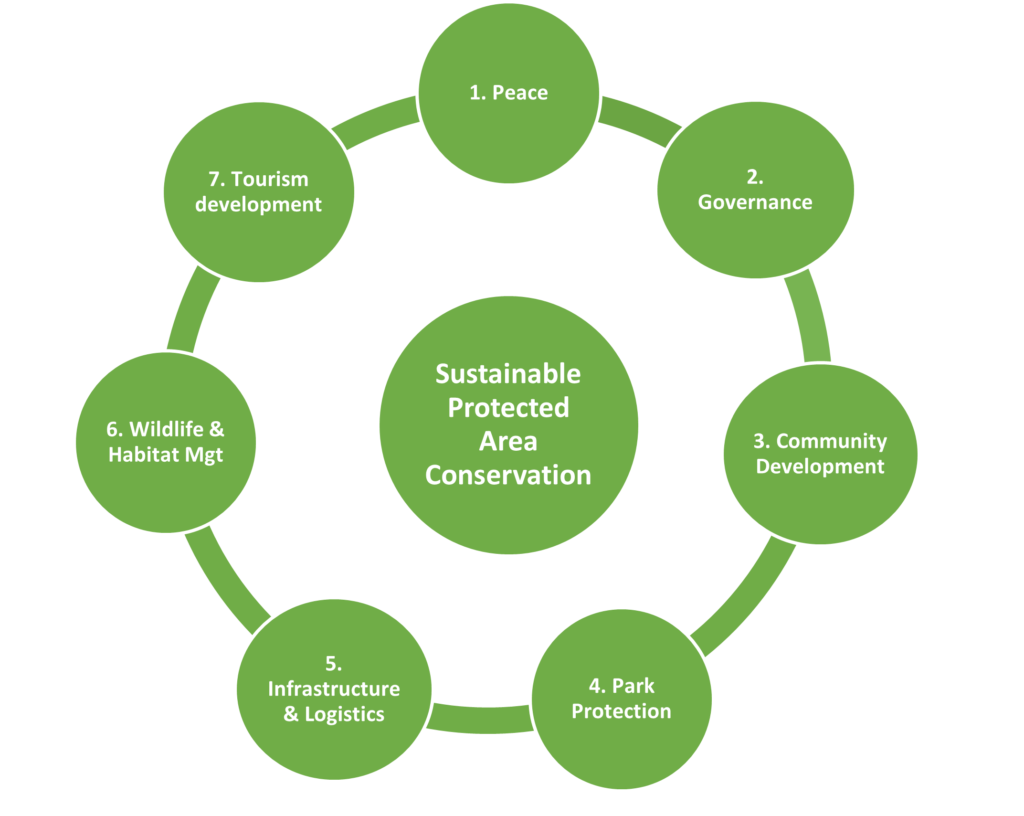
Conflict resolution & Peace building
As human populations expand, animals and humans are increasingly coming into conflict over land and water. Elephants are often raiding the crops in the community while predators may prey on livestock. This results in a reduced tolerance of the community towards wildlife, which sometimes leads to retaliatory measures. We capacitate communities to prevent and reduce levels of conflict, to support them in finding alternative solutions so as to ensure the safety of both people and wildlife.
Besides the human wildlife conflict, there may also conflicts between communities living in and around Protected Areas. The valley of the Kidepo river for example has for a long time been a battleground for the multiple ethnic groups living around and inside the Reserve. Illegal weapons are widespread which has increased the violence and casualties in cattle raiding.
As conflict is often intrinsically linked to natural resources, and with a growing population and limited resources, building capacity in peacebuilding and conflict resolution and finding a positive way to unite communities, are vital elements for the long-term sustainability of wildlife and biodiversity. The development of lasting peace on grassroot level can be enhanced by equipping national and local leaders with conflict resolution skills and techniques. Peace & Conservation champions are identified and empowered to play an active role in the communities as wildlife ambassadors as well as peace builders by addressing tribal conflicts, intercepting retaliatory attacks, mitigating livestock theft and leading reconciliation.
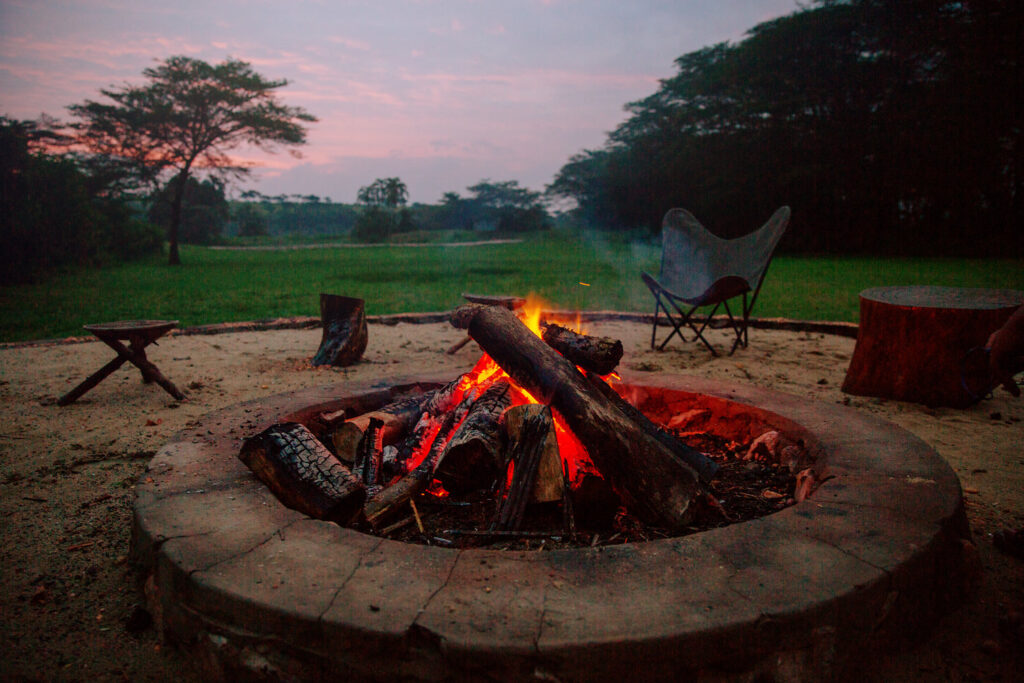
Governance
Rural communities on the reserve periphery are highly dependent on natural resources from the area to meet their basic needs. The use of natural resources can include grazing, hunting for bushmeat consumption, collection of firewood, fishing, grass and tree cutting for construction and energy, honey and fruits collection etc.
Building capacity of national and local leaders and communities in the sustainable management of their natural resources is the foundation to establish a constituency for conservation. Creating a culture of conservation among the youth is also very important for the sustainability of all conservation efforts. Through environmental education programs, we are sensitizing the youth in the schools on wildlife conservation and the need to preserve ecosystems.

Community Development
A lack of resilience in local communities adversely impacts on natural resources, as households turn to bushmeat for protein or access protected areas for water and grazing. We believe that conservation of our wildlife and ecosystems can only be sustainable if we economically empower the communities bordering the park and inspire new generations to care for our planet.
Enjojo Foundation supports community livelihoods by improving living standards through better access to health, clean water, education and clean energy, as well as with the creation of community enterprises such as craft making, potteries, honey production, herbal soap production etc. Our community programme also includes training and support to organic farming methods, agro-forestry and climate change mitigation.
With a growing population, there is a continuous need for energy for years to come. People trespass into the park to cut trees, to look for firewood and to burn charcoal for cooking energy. We promote tree planting, agro-forestry and establishment of tree nursery as a continuous source of seedlings.
By empowering the community and in particular the women, communities will become more resilient to conflict, climate change, public health and food security-related shocks, and their use of ecosystem services will become more sustainable.
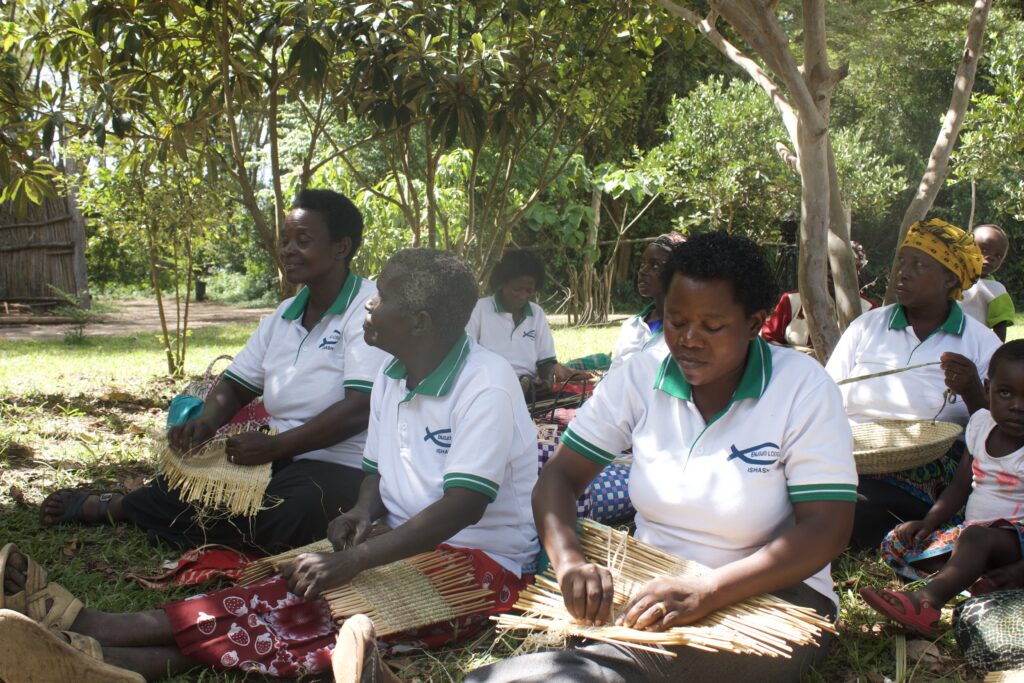
Park Protection
Security in the Park is a top priority and a prerequisite before any of the other activities can take place. Poaching is increasingly carried out by well organised groups who deal in ivory, lion bone parts, and game meat. It is important to have motivated, well-trained and well-equipped law enforcement teams carrying out anti-poaching patrols to protect the wildlife in the Park and to prevent and counter illegal activity. They may be accompanied by unarmed community scouts who know the protected area well and whose expertise facilitates an efficient deployment of the rangers.
Infrastructure & logistics
Many Protected Areas in South Sudan have no infrastructure at all. Headquarters with offices and accommodation, roads, bridges have to be built from scratch. Adequate communications systems need to be set up. This requires an enormous investment, but indispensable for the proper management of a protected area.

Wildlife & habitat management
Ecological baseline data is gathered in the protected areas to guide management strategies and to protect and maintain key habitats and species. Aerial and terrestrial surveys are used to monitor habitat use, and key species populations. Regular wildlife counts give information on wildlife trends. This information feeds into the land-use management plan of the Protected Area.
Monitoring wildlife through collaring animals, camera traps, and other tracking devices helps us in gathering information on animal’s behavior, habitat use and how we can better protect them.
Research in the fauna and flora of the protected area brings important data that gives an indication of the health of the ecosystem.
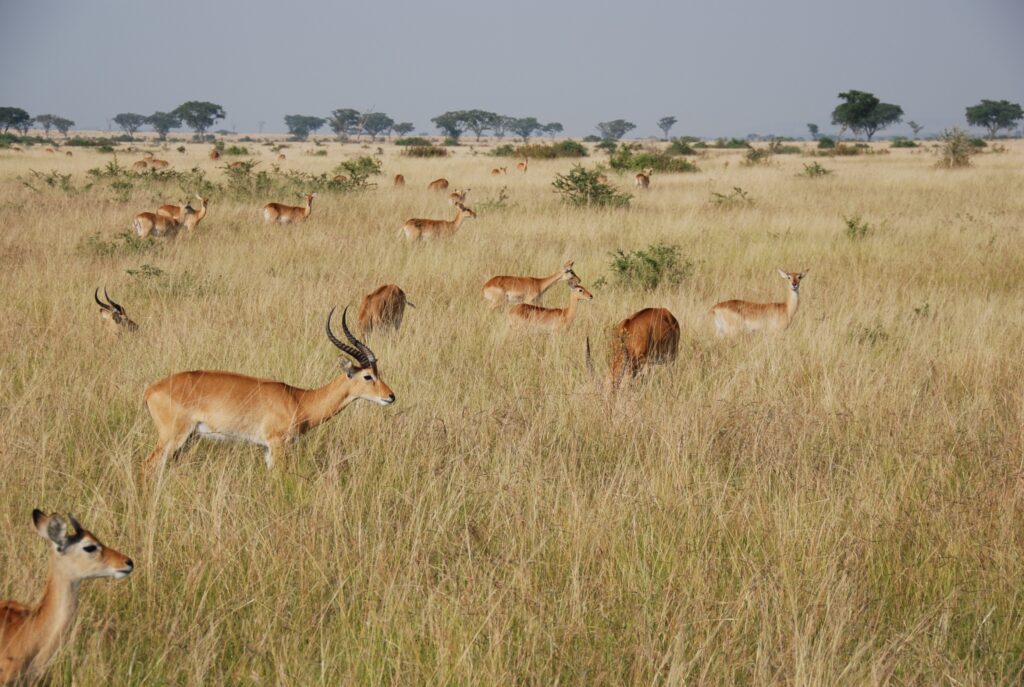
Tourism Development
Tourism brings revenue for the park and the communities, and it reduces the park dependency on donor’s money which is crucial for the long-term sustainability of the ecosystem. The tourism industry also provides jobs for thousands of people and boosts economic development.
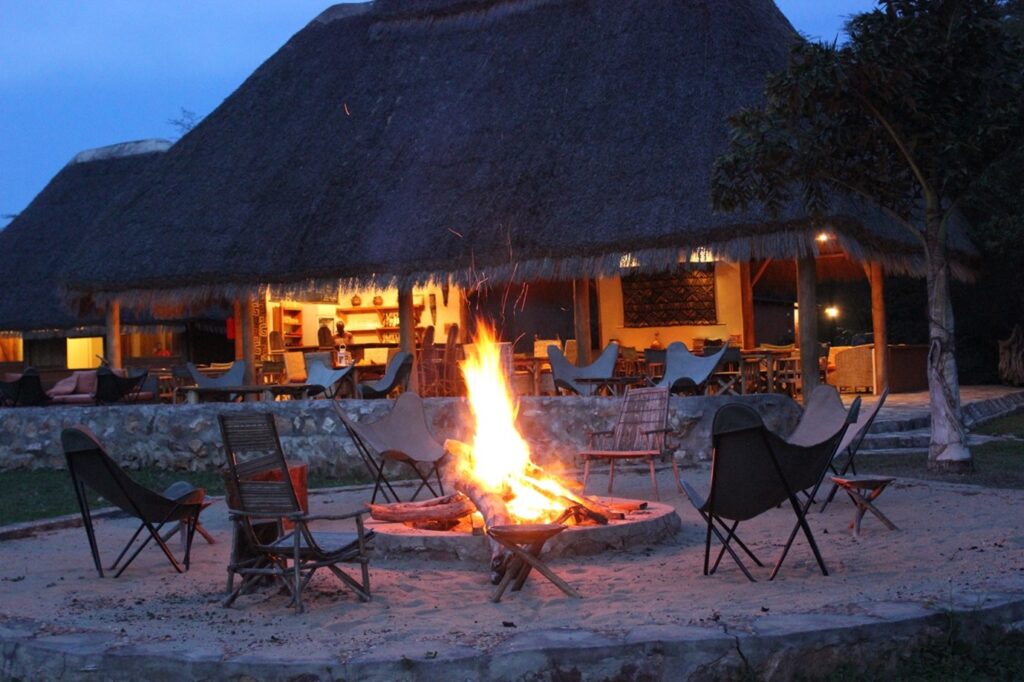
Our work is guided by the following organisational believes:
Inclusivity: We include government, civil society, private sector and community in participatory processes;
Respect: We highly value the views and knowledge of traditional cultures and all local people and incorporate these to our programme design;
Gender: We promote the equal participation of women in decision-making and recognise the importance of developing strategies with gender in mind;
Local: We enable locally-driven change by empowering local leadership and communities;
Sustainable: We believe in education, mentorship and training to ensure local communities can build a peaceful and equitable future for people and nature.
